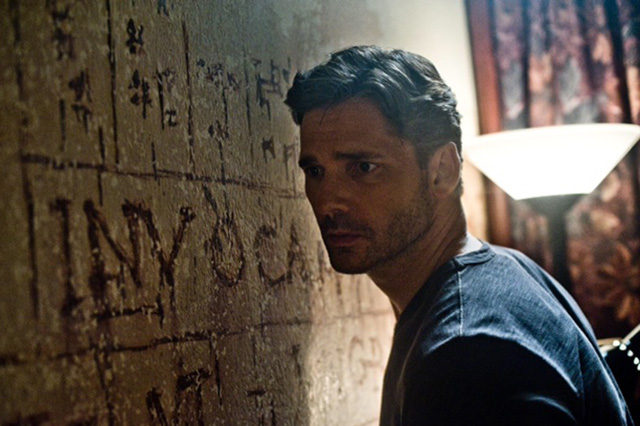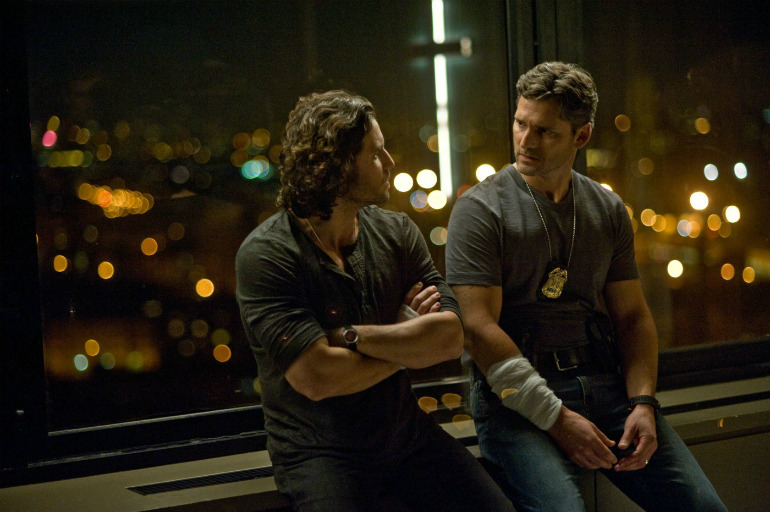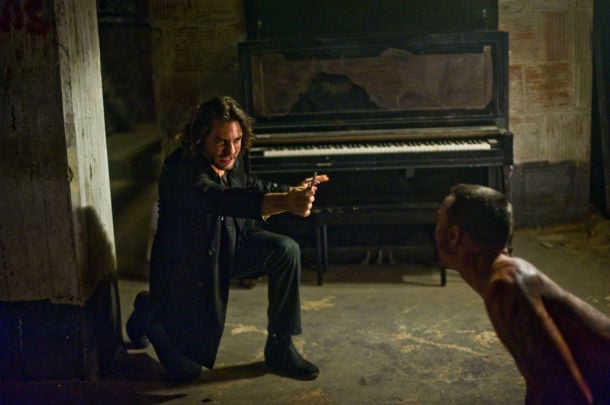WARNING: REVIEW CONTAINS MILD SPOILERS…
I’ve always found the spiritual horror genre compelling for the question it forces its viewers to engage: Does the supernatural being shown really exist?
For many, the answer is a scoff and resounding “no,” but when the subject matter (in this case demonic possession) falls under several religions that together total more than 3 billion followers, the question of the film’s fictional or nonfictional qualities becomes up for debate in a way that no other genre can be.
And that is partly why so many flock to see these movies. Although many audience members are just there for the cheap scares, there’s something alluring about the possibility of supernatural forces engaging with people, and that maybe, just maybe, there is some truth to the “Based on the true case files of such-and-such” these films claim to hold.
Of course, what follows is filmmakers overusing the “Based on true events” trope to attract audiences, all while increasing the extent and intensity of the film’s supernatural elements, and what results is the audience suddenly finding the film too fantastical to be anything but fictional.
But while Scott Derrickson’s Deliver Us From Evil doesn’t convince the existence of evil any more than other horror films, it at least understands what that would mean.
Based on the real life events of New York street cop Ralph Sarchie (Played by Eric Bana), Deliver Us From Evil follows Sarchie as he uncovers a series of related, paranormal cases with the help of Mendoza, a rough-around-the edges Jesuit priest (played by Edgar Ramirez).
Skeptical, to say the least, that these strange occurrences are at all paranormal or spiritual, Sarchie is hesitant to gain the help of Mendoza, who insists these related cases involve demonic possession. He slowly begins to accept this help, however, as he is targeted more and more by the three possessed persons, whom, as Mendoza explains it, have targeted him because he holds the “gift of discernment,” allowing him to sense them, and is therefore a threat.
While this “threat” isn’t really delved into, nor is there an explanation for why the possessed persons in question were chosen as hosts or what their goals are, the strength of the film lies in the relationship between Sarchie and Mendoza, which provides a pleasantly uncommon level of character development in a genre not known for having the roundest of characters.
As most horror films focus as intensely as possible to provide jump scare after jump scare (and Deliver Us From Evil has its fair share of the famous horror cliché to its detriment), Deliver Us From Evil instead finds its strength in the underlying implications of this evil existing. Sarchie, who has resisted the existence of both God and the supernatural since he fell away from the Catholic faith at 12, must reflect and grapple with both what he’s witnessed, and what it means for him in a larger context.
Also, although filled with too many moments of the cliché “protagonist explores dark corridor only to have the inevitable jump scare,” which quickly became both predictable and boring, I found myself enjoying that the context was of an investigative cop addressing reports of strange activity. Watching Sarchie be forced to enter these situations for his job provided a deeper sense of unrest because the reality is that real cops have to enter similarly unsettling environments and sometimes see almost equally disturbing images. And while the existence of the supernatural will likely always be up for debate, the fact remains that the world can be a very dark place and sometimes we’re forced to enter it.
Unlike most horror films where the characters, after discovering the existence of evil and triumphing over it, are simply relieved that they can move on with their lives, Deliver Us From Evil recognizes that the existence of supernatural evil then requires the existence of a supernatural good. Upon finally acknowledging that these individuals were indeed possessed by a demon, Sarchie returns to his Catholic faith and the film ends with the baptism of his new baby girl.
The true success of Deliver Us From Evil is that it goes beyond the horror to address the existential implications of a supernatural evil. While not always succeeding in the scares that many viewers will crave, its willingness to go behind the scenes makes this film stand out among its contemporaries.














